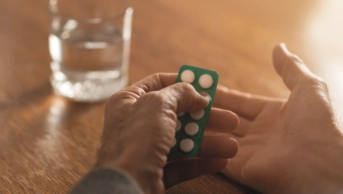
Shutterstock.com
Cures for cancer and Alzheimer’s disease are top of the British public’s hopes for healthcare in the next 70 years of the NHS, according to a poll commissioned by the Association of the British Pharmaceutical Industry (ABPI).
In the YouGov poll of attitudes to science and healthcare, 49% of the 3,265 people surveyed said that a cure for cancer was the medical breakthrough they would most like to see in the next 70 years; 22% prioritised a cure for Alzheimer’s disease.
When asked what the largest contributor to poor health in their local area was, the largest proportion (28%) of respondents said “people eating poor diets”. In Scotland, 37% of respondents chose this option, compared with 25% of Londoners. A further 18% chose “prominence of unhealthy and fast food”, with fewer Scots than Londoners (12% and 22%, respectively) selecting this as the largest contributor.
The poll also showed that while two thirds (66%) of respondents would allow the NHS to use their healthcare data for medical research, almost a fifth (19%) would not be willing to share their data in this way. A smaller majority (58%) of respondents would contribute a blood sample to form part of a national DNA database for medical research, and 57% would be prepared to register as an organ donor for research purposes. Around a third (35%) of respondents would be willing to take part in clinical trials of new medicines, but 42% would not.
Although 68% of respondents agreed that using advances in medical technology to eliminate genetic disorders should be allowed, the majority (74%) said they were uncomfortable with the use of medical technology to select for personal characteristics (such as eye colour), increase physical prowess or improve intelligence.
Asked about existing health services, 52% of respondents said access to the latest advances in medical and healthcare in their area was “very good” or “good” — a figure that rose to 64% in the north east of England, but dropped to 42% in Wales.


